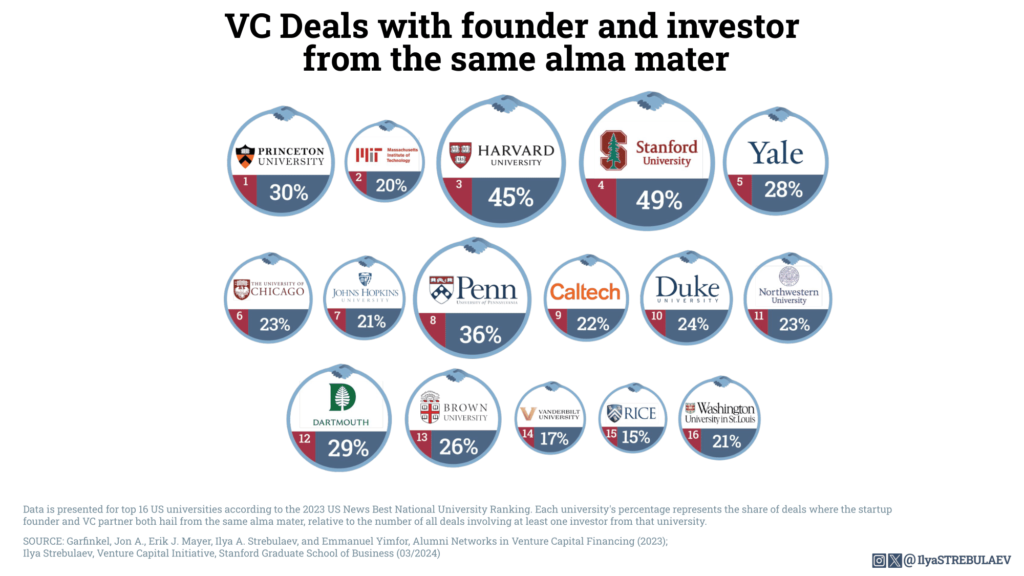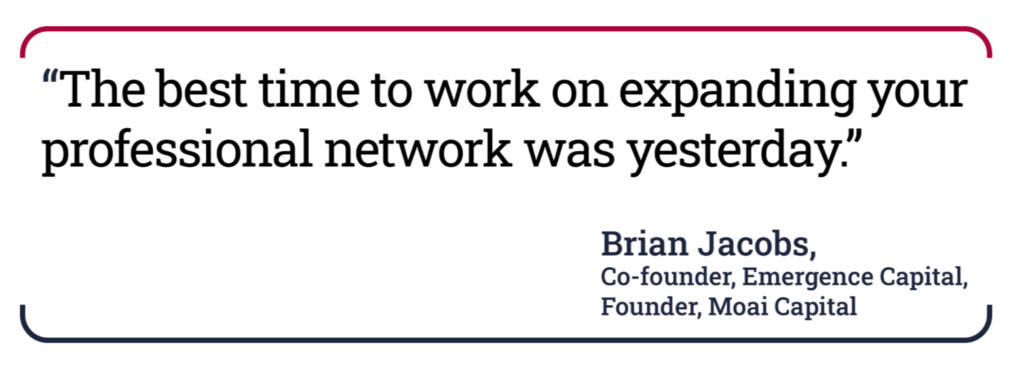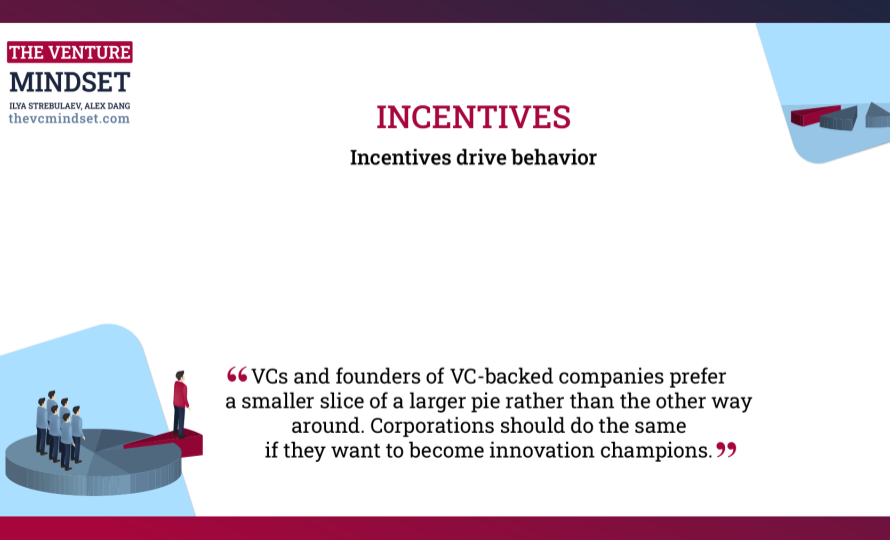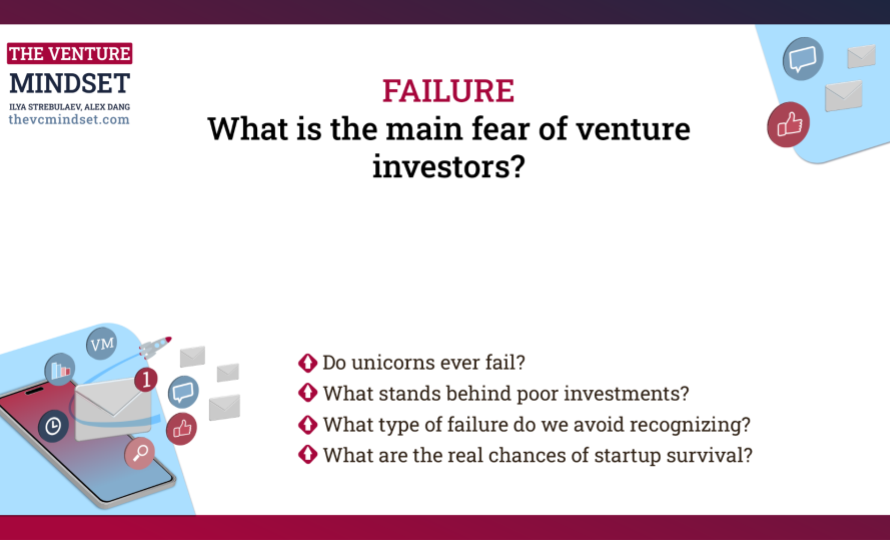In this newsletter, we’ll talk about one skill every venture investor absolutely needs. It’s the same one anyone hunting for new ideas needs. You won’t find the next big thing in a book or manual; by the time somebody has written it down, it’s no longer new. Great ideas—and the people who implement them—appear in unlikely places. That’s why in the innovation and venture world, who you know is often more important than what you know. So, this newsletter is all about …
NETWORKING
Some think that networking is just a time sink. For others, it’s practically their lifestyle. For venture investors, it’s like breathing. They can’t do much of anything without a solid network of entrepreneurs, investors, advisors, corporations, and partners. Networking isn’t just part of the job; it’s where the magic happens. VCs’ network is their gold mine.
Even though corporate innovators should be playing the same game, most often they aren’t. Their worlds are smaller, often stuck inside their own company walls. Too often, they miss out on those random coffee chats that could spark the next big idea. Being a top expert won’t necessarily make you a top innovator.
Are you looking for new ideas, for your next product, or even for your next career? It starts with who you know. Time to cast that net wide. Why not start now? Well, hopefully after you finish this newsletter!
Receive The Venture Mindset newsletter first. Subscribe now
1. From the Classroom
For his venture capital class at Stanford, Ilya regularly brings in co-teachers, discussion panel participants, protagonists of business cases, and guest speakers. Their stories from the trenches complement academic wisdom. This multifaceted class design also gives students an opportunity to connect and expand their network. After all, professional networks are the leading source of VC deals.
A survey of hundreds of VCs highlighted the unmatched value of professional connections. While every source has its significance (and we’ll dive deeper into other sources in upcoming newsletters), the professional network reigns supreme. Therefore, start building your network early. If you are in college, start building it right now.

2. On VCs, founders, and networking
Networks that you build and nourish at college are exceptionally important. Did you know that 33% of all VC deals feature a founder and an investor who studied at the same university? Even more fascinating is the varying share of these connections across different universities. The figure below shows, for various prominent universities, the share of deals involving at least one investor from that university where a startup founder graduated from the same school.

3. The Quote

Brian Jacobs, Ilya’s co-teacher and a very experienced venture investor, could not have said it better. Since you can’t start yesterday, start today. And remember: networking goes beyond just swapping emails, keeping your LinkedIn profile polished, and distributing your business card at every opportunity. True networking involves actively reaching out to people to stay meaningfully connected over time. Whereas it’s common for people to expand their networks rapidly during college, their circle tends to narrow gradually after that, unintentionally limiting exposure to new ideas. Review your rolodex and your Linkedin profile. Reconnect with people you might have overlooked for a while, and then broaden your circle and connect with new people.
4. On Innovation
Venture-minded firms look beyond their walls, seeking innovation in the dynamic world of startups and entrepreneurs. For many people, this step is hard to take because it goes against the natural way of doing things. Big organizations protect themselves from outsiders, preferring to build internal networks rather than external ones. Consider the underdog story of Chester Carlson: his brainchild, later known as Xerox, was initially snubbed by titans including RCA, GE, Kodak, and IBM. Each passed on the chance to back, partner with, or employ Carlson, missing out on what would become a game-changing invention. We write about his instructive story in our book The Venture Mindset. Get a copy of the book to read the details of this fascinating episode.

5. A peek into the book
What sets VCs’ networking apart is the sheer diversity of their connections. They dig deep and often understand in exquisite detail the sector in which they are specializing. But they also cast a wide net, venturing down less-traveled paths. They engage with academics and lawyers, procurement specialists and teenagers, hunting for the next big idea in the most unexpected places. You can learn much more in our book (available for pre-order), but here is a short excerpt from the book on networking and its value:
In the fast-changing world of uncertainty and disruption, you never know where your opportunity might come from. Connections you formed a long ago have the advantage of familiarity, but they may all be too similar and similarly outdated. If your professional network consists of people who share the same background and experience, you are less likely to meet an unusual, innovative idea—and even if you encounter one, the people in your network might uniformly reject it.
In one of our workshops, we asked a group of senior executives at a large European bank to assess their own leadership team. As they turned their heads, they realized how similar their backgrounds were. Most of them had grown professionally within the same four walls and had been with the company for many years. There were no outsiders. Even newly recruited people were from direct competitors. Is it surprising they struggled to source new ideas?
A final thought
The term “network” carries a multitude of meanings, especially in Silicon Valley, where many might first think of interconnected computers, machines, or operations. The key word here is “connected.” The essence of networking is not merely about swapping contacts—it’s about establishing a connection. The connection may happen in a business context. But more often, it happens over a glass of Burgundy (one of our book endorsers happens to be a big fan of Burgundy wine!). The connection may click when you cook pilaf or plov together with your students from Central Asia. You can become friends and even be invited to a wedding in Istanbul or Mexico. In essence, networking shouldn’t be viewed merely as “work” but as a chance to genuinely connect with others. These connections can occur just about anywhere, and one can never know when they will become the seeds of a new venture.
Stay venture-minded!
Ilya Strebulaev and Alex Dang
P.S. If you missed the previous edition of the newsletter about Education, you can read it here.


